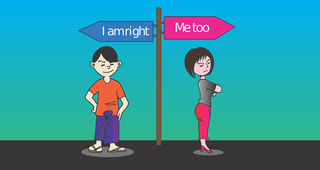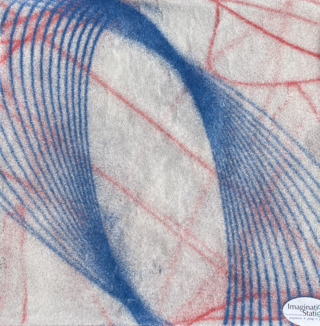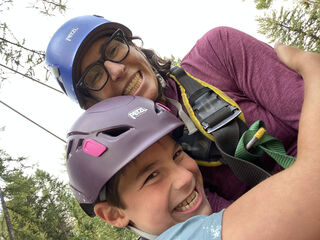Stress
The Stress Is Getting to Me, and My Son Feels It
Personal Perspective: Every day is a lesson in flexibility and resilience.
Posted April 6, 2022 Reviewed by Davia Sills
Key points
- Stress is spiking, especially among parents, but it is possible to find strength while feeling overwhelmed and depleted.
- Instead of reacting to glitches like they are catastrophes, I’m learning to be a more flexible thinker, and that's building resilience.
- Unrealistic expectations don't set anyone up to win. Planning ahead and looking for moments to compromise is the key.
My 10-year-old son Marty is a wonderful, willful kid who is never quick to comply.
At a play space we recently visited, a supervisor named Chad asked Marty if he wanted to create art with a machine that sprinkled colored sand crystals in parabolic shapes.
“Yes!” Marty said. “But I want to make my own design.”
“Good art is based on patterns,” Chad said. “That’s why we use the machine.”
“That’s not creative,” Marty countered.
Chad looked at me for reinforcement. Grown-ups think I carry magic dust that can make my kid conform.
“Marty, those are the rules,” I said.
He shrugged. “OK, I won’t make art.” He walked towards the virtual reality area.
“Welcome to my world,” I whispered to Chad.
“Marty!” Chad called out. “Let’s compromise.”
Marty turned around. “Can I use the machine for blue sand and sprinkle red my way?” he asked.
“Deal,” Chad said. “But blue goes first.”
Marty agreed.
Thanks to Chad, each emerged a winner.
Lately, at home, I’ve been taking an all-or-nothing approach, and everyone loses.

“My way or the highway” doesn’t work. What does?
For Marty’s 10th birthday, we took a small group of boys go-kart racing. After the party, Marty tore open his gifts and read the cards later.
I wrote a list with each child’s name next to a description of his gift and handed it to Marty.
“You need to write a thank-you note a day,” I said. My plan was for him to finish in two weeks, a schedule based on my needs and abilities.
When Marty came home from school the next day, he picked up his iPad, not his pencil.
“Write a thank-you note before you play Pokémon,” I said.
“Mom, I’m tired. I’ll do it later.”
“No, now!” I yelled, along with other words that shouldn’t come out of a parent’s mouth.
Rachel Busman, a clinical psychologist in White Plains, NY, said it’s hard to know when to give in a little, a lot, or not at all: “I don't believe that a child-parent relationship is a democracy. There are times when a limit is not a negotiation.” But, she explained, it’s important to look for opportunities to be flexible and collaborate with kids.
That’s hard to do in the heat of the moment.
One evening, Marty asked to play an extra round of Smash Bros on his Switch.
“No,” I said. He started a new game anyway.
I didn’t stay calm and give him a consequence. I grabbed the controller and slammed the door.
“I’m leaving!” I said. I ate dinner alone at a nearby restaurant.
When I came home, my husband hugged me. “You’re on a short fuse,” he said.
That’s an understatement.
I’m really stressed out. And I’m not alone.
In their recent survey, Stress in America, the American Psychological Association found that worries over war, finances, and COVID have caused “unprecedented levels of stress.” Parents are particularly hard hit as they worry about the future of their children.
Clinical psychologist Carlos Shuman is seeing an increasing number of people who are struggling to handle the challenges of daily life.
“I'm seeing a lot of people who are dealing with incredible stress and not really able to hone in on the coping skills that build resilience,” Dr. Shuman said.
One key to managing stress is flexible thinking. “People who aren't flexible don't see the temporary state of things. They do this all-or-nothing thinking [and they] end up in a negative downward spiral,” she said.
That’s where I’ve been living.

First COVID. Then celiac. Now WWIII?
For the past few years, life has been a series of out-of-control crises.
COVID turned our world upside down, and Marty has been complaining of exhaustion and “brain fog.”
We cut out activities. I picked him up early from school. He stopped playing sports.
I met with his pediatrician and begged for help: “I need a detective, not a doctor.”
In February, a few days after Marty’s annual checkup, the doctor called.
“Marty’s celiac antibodies are sky high,” he said. “Get rid of gluten.”
For people with celiac disease, eating gluten, a protein found in wheat, barley, or rye, triggers an immune response that damages the small intestine. Nutrients aren’t absorbed, and inflammation can spread to the brain and body.
The doctor urged me to be vigilant. “Be careful about cross-contamination,” he said.
A crumb could be calamitous.
Just as I was packing up the Raisin Bran Crunch in my cupboard, Russian missiles exploded in Ukraine. In a split second, complaining about the gluten-free pizza was no longer relevant.
As a former war reporter, I know that suffering isn’t evenly distributed. But I was overwhelmed, furious about feeling powerless.

My brain is wired to seek certainty.
My brain exploded, and my head hurt. It turns out there’s a reason. Science writer and researcher Kayt Sukel says our brain is a “prediction machine.” According to Sukel, author of The Art of Risk, we are naturally wired to avoid uncertainty. From an evolutionary perspective, it signaled danger.
Sukel explained that the brain, a six-pound mass of soft tissue with nerve cells and blood vessels, is constantly assessing risk, making judgments, and trying to “take as many uncertainties out of the equation as possible” in order to preserve its resources.
This is one way we develop new neural pathways. When we find solutions that aren’t straightforward, we become more flexible thinkers.
That builds resilience, our ability to bounce back from adversity.
But it takes time.
Being strong while feeling powerless.
I’ve spent the last six weeks weeping, watching millions of moms with small kids sleep on cots in countries they didn’t call home.
“I’m just happy to be alive,” a Ukrainian woman in a Polish refugee center said on the news.
And I’m in awe of my headstrong son, who has embraced the demands of a gluten-free diet. “I really miss ramen noodles,” Marty told a friend. “But this is what my body needs.”
In the last few weeks, I’ve become more intentional about choosing how I respond to situations I can’t control, and I’ve changed my approach to thank-you notes.
Marty had two left. Instead of making mandates in the heat of the moment, I spoke with him about my feelings.
“I’m tired of nagging,” I said. “But I’m nervous you won’t finish, and I feel embarrassed the notes are late.”
“I’m sorry, Mom,” Marty said. “I’m feeling better, but I'm still so tired after school. I’ll finish the notes this weekend.”
He followed through in ways I couldn’t have predicted, creating cards with sweet words and adorable drawings.
“Wow,” I said. “These took a lot of effort.”
“I know. I needed time to make them special,” Marty said.

Finding beauty in the chaos.
The other day I looked at the sand art that Marty had created with Chad. It had perfectly placed blue ellipses with random lines of red.
“You created such a beautiful piece of art,” I said to Marty. “It looks like a blend of chaos and control.”
“That’s how I feel every day!” he exclaimed.
Tips for staying calm with your kids
Rachel Busman is seeing an increasing number of parents who are burned out and struggling to recover in between stressors like COVID and the war in Ukraine. “There’s only so much the brain and body can tolerate,” she said. Managing expectations can help alleviate some of the stress associated with parenting during these difficult times.
1. Plan ahead to problem-solve. Stress associated with time pressure can feel toxic, and kids often take longer to get things done than adults. Discuss a plan with your kids that manages expectations and lays out contingencies. Unrealistic expectations don’t set anyone up to win in my house.

2. Get out of your comfort zone and give yourself grace. When we experience new parenting dilemmas and situations, we might feel uncomfortable or distressed. But we are growing and gaining valuable information that will help us the next time.
3. Don’t isolate. Reach out to a trusted friend and share your feelings. Parenting is hard, and it helps to feel supported and connected. Consider contacting the National Parent Helpline if you are looking for support. You can also visit Psychology Today’s Therapist Directory to find a therapist near you.




